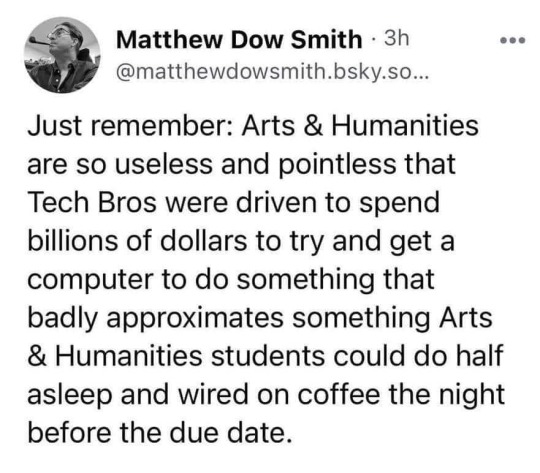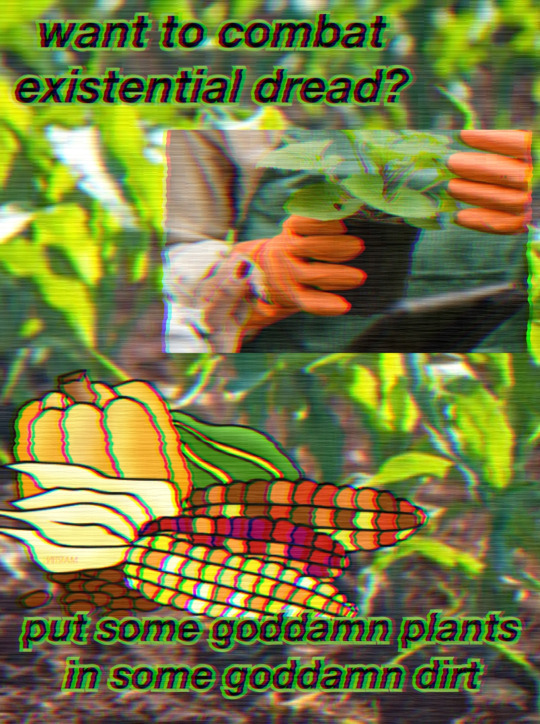Text
thinking today about how much I love literally all fiber arts. I am hopeless at almost every other kind of art, but as soon as there is thread, yarn, or string I can figure it out fairly quickly.
I learned how to knit when i was eight, started sewing at nine, my dad taught me rock climbing knots around that age, I figured out from a book how to make friendship bracelets, I've made my own drop spindle to make yarn with, and more recently I've picked up visible mending. I've learned embroidery through fixing my overalls, and this year I've learned how to darn and how to do sashiko (which I did for the first time today). After years of being unable to crochet I finally figured it out last night and made seven granny squares in just a few hours.
I want to learn every fiber art that I can. I want to quilt, I want to use a spinning wheel, I want to weave, I want to learn tatting, I want to learn how to weave a basket, I want to learn them all. If I could travel through time and meet anyone in the Bible, high on my list are the craftsmen who made the Tabernacle.
I want to travel the world and learn the fiber arts of every culture, from the gorgeous Mayan weaving in Guatemala, to the stunning batik of Java, to Kente in Ghana. I want to sit at the feet of experienced men and women and watch them do their craft expertly and learn from them.
Of every art form I've seen, it's fiber arts that tug most at my heartstrings.
498 notes
·
View notes
Text
Here's THE masterpost of free and full adaptations, by which I mean that it's a post made by the master.
Anthony and Cleopatra: here's the BBC version, here's a 2017 version.
As you like it: you'll find here an outdoor stage adaptation and here the BBC version. Here's Kenneth Brannagh's 2006 one.
Coriolanus: Here's a college play, here's the 1984 telefilm, here's the 2014 one with tom hiddleston. Here's the Ralph Fiennes 2011 one.
Cymbelline: Here's the 2014 one.
Hamlet: the 1948 Laurence Olivier one is here. The 1964 russian version is here and the 1964 american version is here. The 1964 Broadway production is here, the 1969 Williamson-Parfitt-Hopkins one is there, and the 1980 version is here. Here are part 1 and 2 of the 1990 BBC adaptation, the Kenneth Branagh 1996 Hamlet is here, the 2000 Ethan Hawke one is here. 2009 Tennant's here. And have the 2018 Almeida version here. On a sidenote, here's A Midwinter's Tale, about a man trying to make Hamlet. Andrew Scott's Hamlet is here.
Henry IV: part 1 and part 2 of the BBC 1989 version. And here's part 1 of a corwall school version.
Henry V: Laurence Olivier (who would have guessed) 1944 version. The 1989 Branagh version here. The BBC version is here.
Julius Caesar: here's the 1979 BBC adaptation, here the 1970 John Gielgud one. A theater Live from the late 2010's here.
King Lear: Laurence Olivier once again plays in here. And Gregory Kozintsev, who was I think in charge of the russian hamlet, has a king lear here. The 1975 BBC version is here. The Royal Shakespeare Compagny's 2008 version is here. The 1974 version with James Earl Jones is here. The 1953 Orson Wells one is here.
Macbeth: Here's the 1948 one, there the 1955 Joe McBeth. Here's the 1961 one with Sean Connery, and the 1966 BBC version is here. The 1969 radio one with Ian McKellen and Judi Dench is here, here's the 1971 by Roman Polanski, with spanish subtitles. The 1988 BBC one with portugese subtitles, and here the 2001 one). Here's Scotland, PA, the 2001 modern retelling. Rave Macbeth for anyone interested is here. And 2017 brings you this.
Measure for Measure: BBC version here. Hugo Weaving here.
The Merchant of Venice: here's a stage version, here's the 1980 movie, here the 1973 Lawrence Olivier movie, here's the 2004 movie with Al Pacino. The 2001 movie is here.
The Merry Wives of Windsor: the Royal Shakespeare Compagny gives you this movie.
A Midsummer Night's Dream: have this sponsored by the City of Columbia, and here the BBC version. Have the 1986 Duncan-Jennings version here. 2019 Live Theater version? Have it here!
Much Ado About Nothing: Here is the kenneth branagh version and here the Tennant and Tate 2011 version. Here's the 1984 version.
Othello: A Massachussets Performance here, the 2001 movie her is the Orson Wells movie with portuguese subtitles theree, and a fifteen minutes long lego adaptation here. THen if you want more good ole reliable you've got the BBC version here and there.
Richard II: here is the BBC version. If you want a more meta approach, here's the commentary for the Tennant version. 1997 one here.
Richard III: here's the 1955 one with Laurence Olivier. The 1995 one with Ian McKellen is no longer available at the previous link but I found it HERE.
Romeo and Juliet: here's the 1988 BBC version. Here's a stage production. 1954 brings you this. The french musical with english subtitles is here!
The Taming of the Shrew: the 1980 BBC version here and the 1988 one is here, sorry for the prior confusion. The 1929 version here, some Ontario stuff here, and here is the 1967 one with Richard Burton and Elizabeth Taylor. This one is the Shakespeare Retold modern retelling.
The Tempest: the 1979 one is here, the 2010 is here. Here is the 1988 one. Theater Live did a show of it in the late 2010's too.
Timon of Athens: here is the 1981 movie with Jonathan Pryce,
Troilus and Cressida can be found here
Titus Andronicus: the 1999 movie with Anthony Hopkins here
Twelfth night: here for the BBC, here for the 1970 version with Alec Guinness, Joan Plowright and Ralph Richardson.
Two Gentlemen of Verona: have the 2018 one here. The BBC version is here.
The Winter's Tale: the BBC version is here
Please do contribute if you find more. This is far from exhaustive.
(also look up the original post from time to time for more plays)
55K notes
·
View notes
Text
something my mum always taught us was to look for the resources we're entitled to, and use them. public land? know your access rights and responsibilities, go there and exercise them. libraries? go there and talk to librarians and read community notice boards, find out what other people are doing around you, ask questions, use the printers. public records offices? go in there, learn what they hold and what you can access, look at old maps, get your full birth certificate copied, check out the census from your neighbourhood a hundred years ago. are you entitled to social support? find out, take it, use it. does the local art college have facilities open to the public? go in, look around, check out their exhibit on ancient looms or whatever, shop in their campus art supply store. it applies online too, there is so much shit in the world that belongs to the public commons that you can access and use if you just take a minute to wonder what might exist!!!
14K notes
·
View notes
Text
Okay, I know I acted silly about this, but the fact that there is 1 singular year round roller skating rink in the city of Philadelphia home to 1.6 million people is kinda fucking horrifying when you think about the broader implications of it.
21K notes
·
View notes
Text
39K notes
·
View notes
Text
Things I wish I had read in "beginner" sewing tutorials/people had told me before I started getting into sewing
You have to hem *everything* eventually. Hemming isn't optional. (If you don't hem your cloth, it will start to fray. There are exceptions to this, like felt, but most cloth will.)
The type of cloth you choose for your project matters very much. Your clothing won't "fall right" if it's not the kind of stretchy/heavy/stiff as the one the tutorial assumes you will use.
Some types of cloth are very chill about fraying, some are very much not. Linen doesn't really give a fuck as long as you don't, like, throw it into the washing machine unhemmed (see below), whereas brocade yearns for entropy so, so much.
On that note: if you get new cloth: 1. hem its borders (or use a ripple stitch) 2. throw it in the washing machine on the setting that you plan to wash it going forward 3. iron it. You'll regret it, if you don't do it. If you don't hem, it'll thread. If you don't wash beforehand, the finished piece might warp in the first wash. If you don't iron it, it won't be nice and flat and all of your measuring and sewing will be off.
Sewing's first virtue is diligence, followed closely by patience. Measure three times before cutting. Check the symmetry every once in a while. If you can't concentrate anymore, stop. Yes, even if you're almost done.
The order in which you sew your garment's parts matters very much. Stick to the plan, but think ahead.
You'll probably be fine if you sew something on wrong - you can undo it with a seam ripper (get a seam ripper, they're cheap!)
You can use chalk to draw and write on the cloth.
Pick something made out of rectangles for your first project.
I recommend making something out of linen as a beginner project. It's nearly indestructible, barely threads and folds very neatly.
Collars are going to suck.
The sewing machine can't hurt you (probably). There is a guard for a reason and while the needle is very scary at first, if you do it right, your hands will be away from it at least 5 cm at any given time. Also the spoils of learning machine sewing are not to be underestimated. You will be SO fast.
I believe that's all - feel free to add unto it.
22K notes
·
View notes
Text
“The oldest olive tree in the world located on the island of Crete. It is estimated to be as over 3,000 years old and still produces olives.”
—
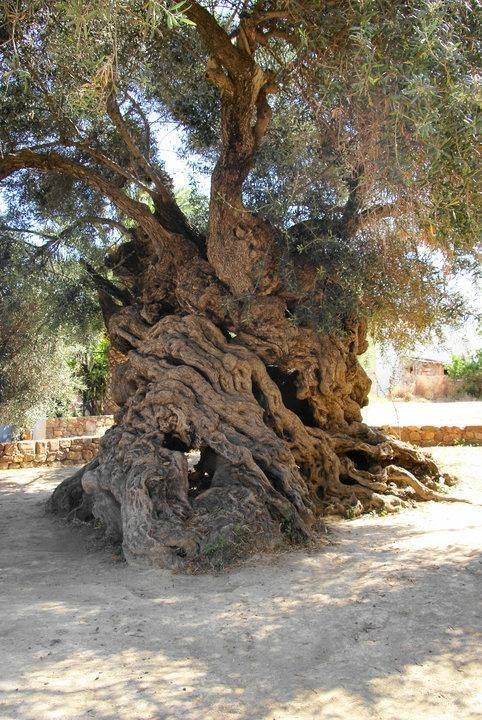
59K notes
·
View notes
Text
A team of Rhode Island School of Design students and researchers have created tesselated, floating planting beds made of a mycelium biomaterial to cleanse waterways of pollutants and restore wetland habitat.
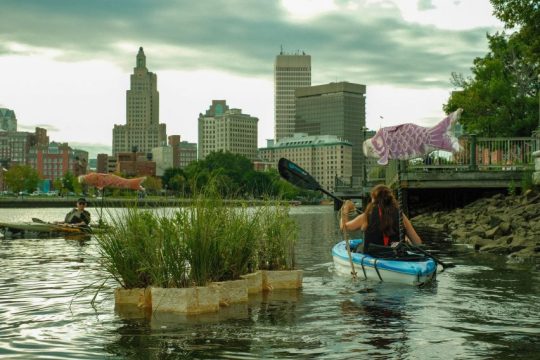
The floating Biopods act to introduce native plants back to degraded wetland systems while cleansing the water through bioremediation, or the re-introduction of microorganisms that naturally decontaminate their environment.

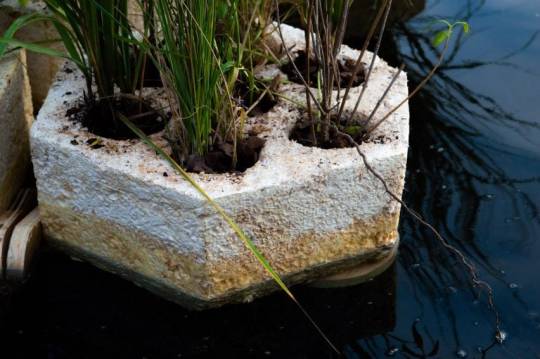
"Because of the urbanization of the Providence River itself, a lot of the wetland that acts to actively remediate pollution had been removed. So the project is really about reintroducing this new biology to kick start these ecosystems again so that the river might repair itself."
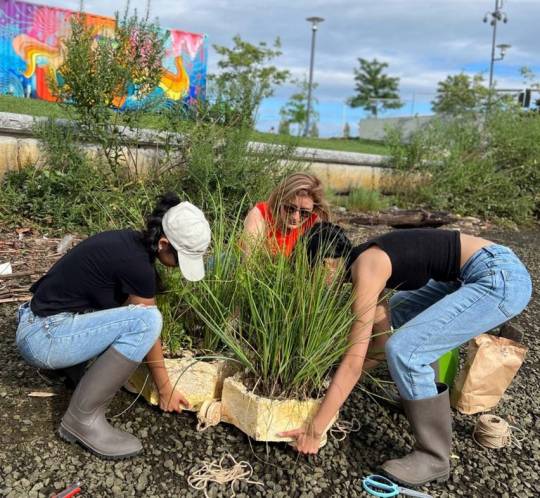
"It's interesting, the relationships that we have to biomaterials and the way that we are connected to systems that have the potential to remediate in a way that isn't electricity intensive or chemically intensive," said Banerjee.
4K notes
·
View notes
Text
It’s solar and wind and tidal and geothermal and hydropower.
It’s plant-based diets and regenerative livestock farming and insect protein and lab-grown meat.
It’s electric cars and reliable public transit and decreasing how far and how often we travel.
It’s growing your own vegetables and community gardens and vertical farms and supporting local producers.
It’s rewilding the countryside and greening cities.
It’s getting people active and improving disabled access.
It’s making your own clothes and buying or swapping sustainable stuff with your neighbours.
It’s the right to repair and reducing consumption in the first place.
It’s greater land rights for the commons and indigenous peoples and creating protected areas.
It’s radical, drastic change and community consensus.
It’s labour rights and less work.
It’s science and arts.
It’s theoretical academic thought and concrete practical action.
It’s signing petitions and campaigning and protesting and civil disobedience.
It’s sailboats and zeppelins.
It’s the speculative and the possible.
It’s raising living standards and curbing consumerism.
It’s global and local.
It’s me and you.
Climate solutions look different for everyone, and we all have something to offer.
35K notes
·
View notes
Text
You know how companies used to make flour sacks with pretty flower patterns on them because mothers would make dresses out of them for their daughters? We should bring that back. Paper bags designed to be reused as wrapping paper. Jars of jam designed to look nice filled with pencils or homemade sauces. Fabric that's high quality enough to use as a patch.
Give things a second life!!
27K notes
·
View notes
Text
"I had a professor called Oliver Rackham, an ecologist and historian, who studied the ways that ecosystems have shaped--and been shaped by--human cultures for thousands of years. He took us to nearby forests and told us about the history of these places and their human inhabitants by reading the twists and splits in the branches of old oak trees, by observing where nettles thrived, by noting which plants did or didn't grow in a hedgerow. Under Rackham's influence, the clean line I had imagined dividing nature and culture started to blur."
-Merlin Sheldrake, Entangled Life
289 notes
·
View notes
Text
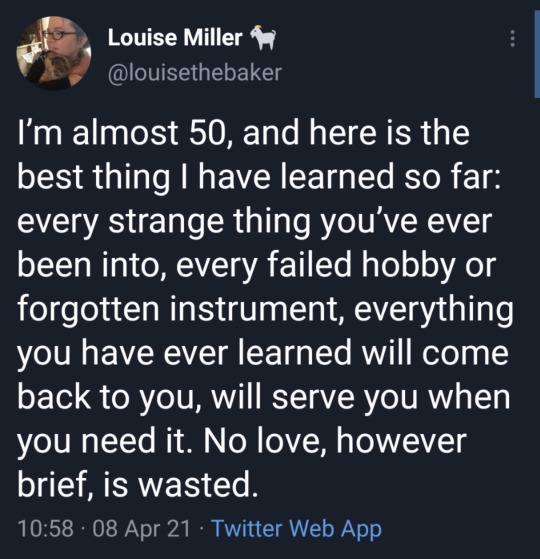
“I’m almost 50, and here is the best thing I have learned so far: every strange thing you’ve ever been into, every failed hobby or forgotten instrument, everything you have ever learned will come back to you, will serve you when you need it. No love, however brief, is wasted.” @louisethebaker on Twitter
150K notes
·
View notes
Text
One of my favorite things about learning about traditional textiles is the little ghosts they left in the language. Of course the ghosts are there, now that I know to look for them. Once upon a time, half the population spent a majority of their day making textiles. Spinning, at the very least, has been a part of humanity since the Neanderthals. That kind of knowledge doesn't just disappear.
A heckle was a device with sharp metal spikes, and people drag flax through the spikes to separate out the fibers from the chaff. When you say someone heckled a performer, you think you are being literal but you're speaking in an ancient metaphor.
When my grandpa says "spinning yarns" to mean telling stories, he knows that one's not quite literal, but its vividness is lost to him. There is no image in his mind of rhythm, muscle memory, and the subtle twist that aligns clouds of fibers into a single, strong cord.
When a fanfic writer describes someone carding their fingers through someone's hair, that's the most discordant in my mind. Carding is rough, and quick, and sometimes messy (my wool is full of debris, even after lots of washing). The teeth of my cards are densely packed and scratchy. But maybe that's my error, not the writer's. Before cards were invented, wool was combed with wide-toothed combs, and sometimes, in point of fact, with fingers. The verb "to card" (from Middle English) may actually be older than the tools I use, archaic as they are. And I say may, because I can't find a definitive history. People forget, even when the language remembers.
20K notes
·
View notes
Text
i remember adults telling me, as a kid, to listen to doctors and get my flu vaccine and any shots i could because they remembered Before.
then they started fighting Covid precautions.
i remember adults telling me, as a kid, that the ozone was disappearing and the earth was dying and we needed to recycle and save the planet.
now my parents think climate change is a myth.
i remember adults telling me, as a kid, that racism was a plague, that we had to love and accept everyone, that we should never judge before walking a mile in their shoes.
then they told me that protesting for my Black siblings was wrong.
i remember adults telling me, as a kid, that we needed to give to the poor. working at soup kitchens. making quilts. collecting food and money and supplies. building houses. because it was the christian and just plain right thing to do.
now they look at me, on food stamps with their grandchildren, and lament the "welfare state".
i remember adults telling me, as a kid, that it was easier for a camel to pass through the eye of a needle than a rich man to enter the Kingdom of Heaven and that any rich man, especially an immoral one, should never run our country.
you can guess who they voted for.
i remember adults telling me, as a kid, so very much.
when did they forget?
83K notes
·
View notes
